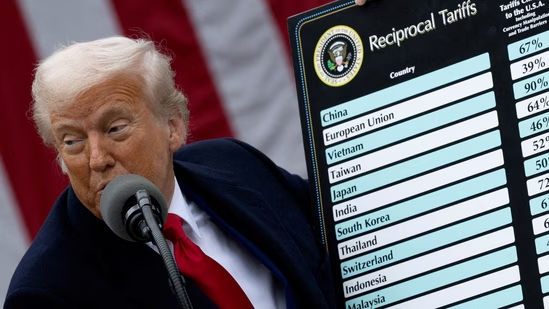U.S. President Donald Trump, a leading candidate in the upcoming presidential election, announced a 25% tariff on imports from Japan and South Korea. According to Trump, the tariff will correct “decades of unfair trade practices’ that “have hollowed out American manufacturing.” This action has raised immediate alarm among world markets, foreign governments, and policy experts.
Trump’s tariff approach encompasses an extensive range of products such as automobiles, electronics, and steel products – areas in which Japan and South Korea are major exporters to the U.S. economy. According to the U.S. Census Bureau, as of 2024, Japan exported $134 billion and South Korea exported $111 billion to the U.S. economy. Automobiles, semiconductors, and electronics accounted for more than 65% of this volume.
Trump defended the decision as a response to “manipulated currencies, unfair subsidies, and market dumping.” However, neither the U.S. Trade Representative (USTR) nor the International Trade Commission (ITC) issued any recent findings to back prompt punitive tariffs. There are concerns about a lack of procedural transparency and due diligence.
Context
Trump’s actions are reminiscent of his first-term trade policies (2017-2021), during which he levied heavy tariffs on China, Canada, Mexico, and the European Union — a protectionist project that included a very expensive trade war with China that stretched out across global supply chains and higher prices for American consumers. There were some short-lived benefits in a few of the categories of U.S. manufacturing, but the net gain was muddled at best.
Japan and South Korea have been allies of the U.S. for many years, both economically and militarily. Both nations host tens of thousands of U.S. troops, and they work together to address critical regional security issues, like North Korea and China. Because of this history, the decision is both politically delicate and potentially damaging to trilateral relations.
While Trump’s claims about currency manipulation and dumping are alarming, they are not yet backed by U.S government reports or WTO reports. Both Japan and South Korea are quite transparent economies in a relative sense, and both score well in the W.E.F. global trade fairness ratings.
Furthermore, U.S. economic data suggests that the U.S. trade deficit is driven more by the determinants of trade and macroeconomic variables such as savings and investment, not uneven bilateral trade practices.
Implication
- Short-term impacts:
Increased costs of electronics, automobiles, and tech products.
Share market fluctuations in Asia and the U.S.
Increasing tensions in diplomatic relations.
- Long-term Impacts:
Reduced trilateral security cooperation in East Asia may play into China’s hands.
Japan and South Korea are imposing retaliatory tariffs.
Enhanced suspicion about U.S. trade trustworthiness by all other partners.
- Political Considerations:
The move might mobilize Trump’s voting base ahead of the election.
Could pressure the current administration to respond or offset with the engagement of Turkey.
Donald Trump has created a potential policy disaster by imposing a 25% tariff on Japan and South Korea. Although the intent is to protect American industries, there is little tangible evidence to support the decision. The idea of initiating economic and geopolitical consequences can have repercussions. Both countries are critical allies, and losing this relationship can, unfortunately, strain the alliance and impact relations with other countries in the international trade community.
This case illustrates larger patterns of protectionism and changing patterns of global trade. It shows the need for a careful balance between national economic interests and the upholding of strategic alliances. As these developments unfold, the world will be watching to see how Japan, South Korea, and the globe respond to this next wave of escalating trade tensions.
Keep reading questiqa.us







Average Rating